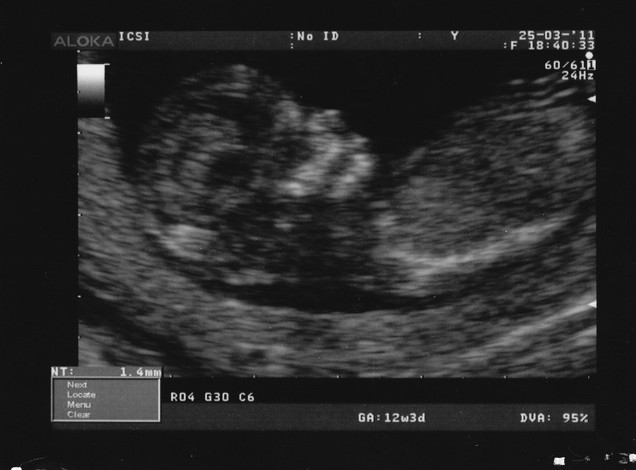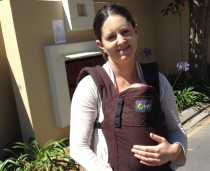A few months ago, I faced an interesting dilemma. Laid out on the couch with a sore throat so painful I could barely swallow, I tried to decide which was worse: hauling my sick body out of the house for the first time in a week to accomplish an important errand, or sending my housekeeper, driver, and/or bodyguard to the drugstore to buy a pregnancy test. I didn’t love either of my options.
With my significant other in the U.S. (nice timing!) I decided to take the “do nothing” approach and wait for the throat infection to pass. Five days later I made the trip to the drugstore myself, with driver and bodyguard in tow of course. There was nothing I could do about the entourage, but at least going myself spared me from having to pantomime “pregnancy test” to two gruff-looking Pakistani ex-military men.
I chose my most conservative Pakistani outfit for the errand: full shalwar and long sleeves. For some reason this made me feel better braving Shaheen’s Chemist. At pharmacies in Pakistan, a line of male employees stands six-deep behind the register watching your every move. Don’t bother trying to figure out how all of them are necessary for the ringing up, packaging, or payment of your order: they are just there, and always will be. The drugstore is also so brightly lit one could perform surgery on the counter.
I blew by the freezer case of Snickers ice cream bars (my normal reason to visit Shaheen’s) and entered the shop, accompanied only by the bodyguard lurking by the front door and the driver idling out front, to ask for a pregnancy test. I half expected the Counter Men to demand a marriage license, a man, or at least a wedding ring. They did none of this, and instead one of the twenty men behind the counter promptly walked me over to a corner and rummaged around in a box. He handed me a test and said, “How many?”
“Um, probably just one is enough?” The stoic look on his face told me I was wrong about this. “Okay, then maybe three?” This was met with approval. As the tests were 70 rupees each I figured I could swing it. Then he reluctantly pointed out a different brand and mentioned that it too was an option. “What’s the difference?” My drugstore guide explained to me that the first brand required the use of a syringe and carefully orchestrated drops. The other was even more complicated.
Upon returning home and inspecting my purchase, I discovered that the code for deciphering the tests was more complicated still. There were options for dark lines, light lines, dark lines on top + no line on bottom, light line on top + dark line on bottom, no lines on top or bottom, and one that had a tiny smiling picture of your future baby’s face. Okay, not really that last one.
After wrestling with a syringe the size of a toothpick and following the directions exactly as written, I found myself two minutes later, alone in my house, staring in wonder at the tiny stick. How could my test possibly result in the one combination not listed on the test key? How could my particular combination of line length and color not correspond to any of the seeming 100 options posted? As it turns out, it merely needed to marinate a little while longer before giving me the good albeit surprising news. But for those first few minutes, I confronted what was to be only the first of many befuddling questions about being pregnant in Pakistan.
Here are some others:
Why can’t women be trusted to handle their own doctor’s appointments? When the clinic had to change the date of my ultrasound, they called Drew. He looked amused and then handed his phone over to me.
Why does every (otherwise hard-ass) security officer in Islamabad completely fold at the checkpoint and wave you through when you pat your belly and say you don’t want to go through the scanner…and why doesn’t every woman do this just to avoid the hassle?
Why is it so difficult to figure out exactly how to make the big announcement? Hint: the following two ways are not acceptable: 1. “I’m pregnant.” (Why not: Nobody in Pakistan uses the word pregnant. “In the family way” and “expecting” are possible alternatives.) 2. “We’re having a baby in October.” (Why not: No one would ever say this because it is presumptuous to say exactly what is going to happen in the future. Babies will only be born insh’allah, if God wills it.)
And, I know I’m back there again, but: why the syringe?? What happened to good old fashioned peeing on a stick? This is classic Pakistani over-engineering at work. I wish I could show you a picture of this delicate plastic instrument that would work well as a prop in a doll hospital, is only in use for about 2.5 seconds, and requires manual dexterity at a time when your thoughts really are elsewhere. Why Pakistan, why?
But I don’t want to make it sound all bad: there has been some serious upside too. Shalwar kameeze are roomy and billowy, making maternity clothes unnecessary for at least a while and ably hiding the bump until you’re ready to tell the world. Each doctor visit at Islamabad’s premiere maternity clinic costs less than $20, paid straight out of pocket, with no pesky insurance forms to fill out and including a nice ultrasound every time for your viewing pleasure. (Yes, every time. I have already had five ultrasounds.)
Given Pakistan’s family-oriented culture, your big news is always greeted with the utmost excitement and delight, and people’s reactions make you feel like you are the luckiest person in the entire world. And finally, your entire retinue of staff, drivers, guards, etc. continue to make life easier so you can relax and not worry about doing dishes, laundry, housecleaning, driving, parking, grocery shopping, or cooking while doing the job of growing a baby.
So, why not stay? Why not live out the nine months in Islamabad, soaking up the sun on the terrace while being brought healthy smoothies on trays and indulging in endless ultrasounds? My yoga teacher does pre-natal classes, any tailor in town could easily whip up maternity shalwar to clothe an expanding frame, and I’ve already developed relationships with all the staff at the maternity clinic (although they all still look at me funny, as if to say: why aren’t you using the Health Unit at the Embassy? Answer: I don’t have access privileges).
Pleasant as it all sounds, there are some flies in the ointment, such as being on the other side of the world from my family, facing language barriers and total uncertainty about labor and birthing procedures in the hospitals of Pakistan, and the fact that 35 of the “100 Healthiest Foods to Eat During Pregnancy” aren’t available in Islamabad. Coupled with my job ending, the news seemed a clear sign that it was time to head home for awhile.
Still, I will miss almost everything about living in Pakistan, and most things about being pregnant there. I will miss being the only pregnant American woman in town (in the country?). I will miss my guards’ extra special solicitation when I get out of the car, holding the gate open for me gingerly while watching every step of my progress up the driveway with care. I will miss all my friends and their good wishes, their excitement to be the baby’s aunties and uncles, and their rock-solid belief (predicated on nothing as of yet) that she is sure to be especially good-looking.
As one of my going-away presents, I received a tiny shalwar kurta in baby-size that I carefully packed away in my suitcase. Even if she isn’t born there, insh’allah our baby will always be a little bit Pakistani.






20 Comments